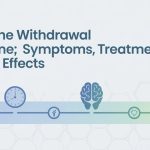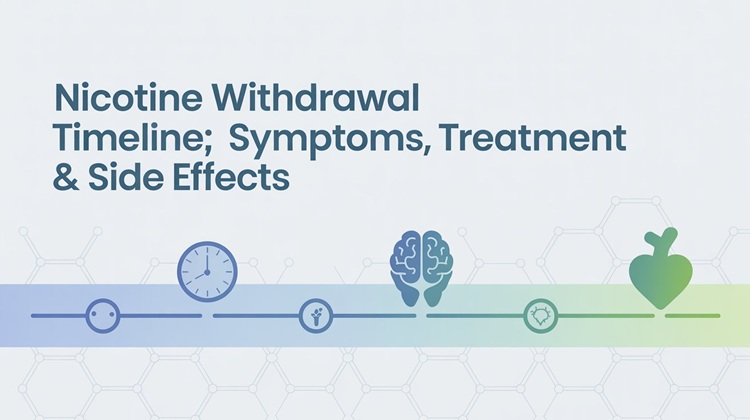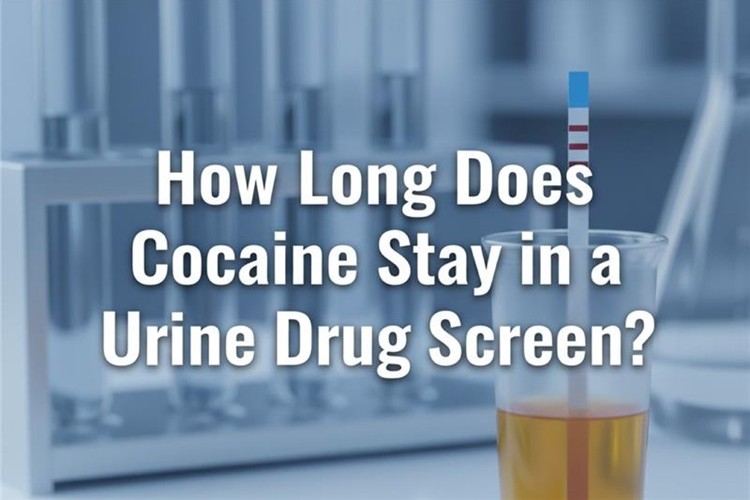What is Adderall?
Adderall is a prescription drug that is mainly used in the treatment of attention-deficit/hyperactivity disorder (ADHD) and narcolepsy. It has two active substances: amphetamine and dextroamphetamine, which are central nervous system (CNS) stimulants. These substances boost the concentration of neurotransmitters such as dopamine and norepinephrine within the brain, enhancing concentration, attention, and impulse control.
Adderall is effective as a medicine, but it can also be abused and addictive. Due to its stimulant effect, it is at times abused by people who want to feel more alert or to improve their cognition, most particularly students and professionals.
Long-Term Effects of Adderall
Adderall has serious physical and psychological side effects with long-term use or misuse. Despite its medical usefulness when used in the appropriate amounts, chronic drug use can alter the brain chemistry and make one addicted to it. Among the possible long-term outcomes are:
- Heart conditions: High blood pressure issues, heart arrhythmia and possible damage to the heart.
- Mental diseases: Awareness, paranoia, and danger of mood disorders.
- Cognitive decline: With time, excessive use is likely to cause memory impairment or a decrease in cognitive flexibility.
- Tolerance and dependence: The brain can also be dependent on the drug to function normally; hence, increasing dosages are necessary to have the same effect.
These side effects may be life-threatening and severe without the proper medical supervision.
100% Confidential Support is Available 24/7
No matter what you’re going through, you’re not alone. Our dedicated team is here to provide a safe, judgment-free space where you can talk openly and honestly. Whether you need emotional support, resources, or just someone to listen.
We’re here for you—completely confidential and always respectful of your privacy. Call us today!
Other Short-Term Side Effects of Adderall
The use of Adderall can cause typical side effects even when it is taken short-term or on prescription. This may be different according to dosage, frequency and individual body chemistry. Short-term side effects may include:
- Heart rate and blood pressure are increased.
- Anorexia and weight reduction.
- Dry mouth and headaches
- Insomnia or restlessness
- Nausea and stomach pain
- Nervousness or mood swings
Although most of these effects usually fade away as your body gets used to the medication, overusing it or taking more will only make them more severe, putting you at a greater risk of having some dire consequences.
Contact Palm Coast Treatment Solutions
Battling with Drug and Alcohol Addition? Remember, you are not alone and we are here to help you!
Symptoms of Adderall Overdose
An overdose of Adderall might happen in case of excessive intake of the drug, either knowingly or unknowingly. This is a healthcare crisis, and it has to be addressed. The overdose may include:
- Improper agitation or perplexity.
- Accelerated pulse and hypertension.
- Pain in the chest or fast/slow heartbeats.
- Hallucinations or panic attacks.
- Seizures or tremors
- Loss of consciousness

Overcome Addiction with Palm Coast Treatment Solutions.
Book an appointment.
What Category of Drugs Does Adderall Fall Under?
Adderall belongs to the Schedule II controlled substances list of the Controlled Substances Act because it is extremely abusable and addictive. It is a pharmacologically stimulating drug.
Stimulants are those drugs that accelerate the brain and the nervous system, causing an individual to become more alert, energetic, and focused. Ritalin (methylphenidate), Dexedrine, and some derivatives of methamphetamine are included in the list of other drugs in this group.
Here’s a quick breakdown:
- Drug group: Stimulant (CNS stimulant)
- Controlled substance: Schedule II.
- Medical: ADHD and narcolepsy.
- Risk potentiality: Addiction, dependence, heart problems.
As Adderall influences the level of dopamine, it will cause an illusion of euphoria when abused in excess amounts, and that is why it is highly regulated.
Treatment for Adderall Addiction
Compulsive use of Adderall despite its destructive impact may be a sign of Adderall addiction. It is a disorder that may affect all spheres of life, including both physical well-being and relationships, as well as mental health.

Palm Coast Treatment Solutions provides an addiction treatment program that is both psychologically focused and physically focused to stimulant dependency. We plan to treat with:
- Medical detox: Withdrawal symptoms under medical supervision.
- Therapy and counseling: Cognitive-behavioral treatment (CBT) of treatment (group and individual), as well as learn how to cope with triggers and learn coping skills.
- Dual diagnosis treatment: This is when co-occurring disorders such as anxiety, depression or ADHD and addiction are treated.
- Aftercare and relapse prevention: Long-term counseling and lifestyle counseling to ensure long-term recovery.
In case you or a loved one are facing the problem of Adderall misuse, you can seek help. Treatment can bring about equilibrium, reconstruct well-being and make you take charge of your life.
Conclusion
Adderall is a very potent stimulant drug that, when taken in the right dosage, enables individuals with ADHD or narcolepsy to have more productive and focused lives. Nevertheless, the abuse or long-term use may cause severe health hazards, dependence, and addiction.
The key to responsible use of Adderall and knowing when it is harmful may be knowing what exactly the drug is, namely, a Schedule II stimulant. Professional treatment may help you overcome addiction or abuse in case you feel that you are dependent or abusing.
Take the First Step Toward Recovery
When the use of Adderall has become too overwhelming or unmanageable, then Palm Coast Treatment Solutions will be able to assist. We have a caring and highly qualified medical and therapeutic staff that offers evidence-based care that will be long-lasting for recovery.
Call us now at (386) 284-4151 and speak to one of our recovery specialists and start the process of gaining freedom and healing.
Overcome Addiction with Palm Coast Treatment Solutions.
Book an appointment.
FAQs About Adderall
What class of drugs is Adderall in?
Adderall is an expensive drug, which is legally a Schedule II controlled substance of the central nervous system (CNS) stimulant group of drugs.
Is Adderall a stimulant or an antidepressant?
Adderall is not an antidepressant; it is a stimulant. It is effective because it elevates the level of dopamine and norepinephrine to enhance focus and attention.
Is Adderall an opioid or narcotic?
No, Adderall is not an opioid or a narcotic. It is a stimulant drug that is used to manage ADHD and narcolepsy.
What category do ADHD meds fall under?
The majority of the medications used in ADHD belong to the category of stimulants, but there are also non-stimulants (such as Strattera (atomoxetine) and Intuniv (guanfacine)).
What drug class are ADHD meds?
ADHD medicines mainly fall under the group of stimulant drugs that contain amphetamines and methylphenidates that are used to control brain chemicals.






















